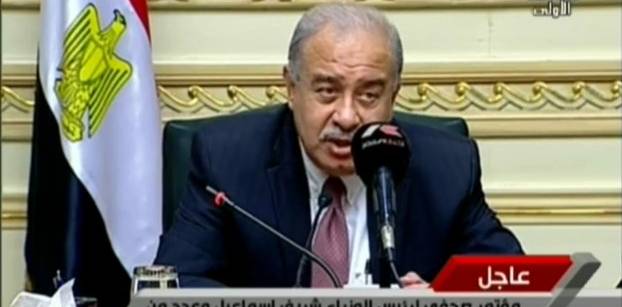Egypt Prime Minister paves the way for imminent price hikes

Prime Minister Sherif Ismail delivers a press conference Friday.
CAIRO, Nov 4 (Aswat Masriya) - Prime Minister Sherif Ismail paved the way for a hike in prices of some products and services, including metro fares, heralded by the decision to float the Egyptian pound.
In a press conference Friday, Ismail said economic reforms come at a price and that those decisions could not be further delayed.
The conference brought together Ministers of Petroleum, Supply, Investment, Social Solidarity, among others to explain the consequences of the currency floating.
While the Cairo Metro Authority said on Friday that there are no decisions yet taken to increase ticket prices, MENA reported. Ismail maintained that “the metro prices cannot stay as they are if we want to deliver the same quality of service.”
The conference culminated with six main decisions, including lifting the tariffs on sugar imports, increasing the value of ration cards up to EGP 21 from EGP 18, increasing the price of wheat supply from farmers from EGP 420 to EGP 450 and the price of sugar cane up to EGP 500 in the next harvest season.
This is in addition to widening the age bracket in the Takaful and Karama support program to include 60 year-olds instead of 65.
The Central Bank of Egypt (CBE) issued several controversial decisions on Thursday to float the Egyptian currency, in addition to raising the energy prices, as part of economic reforms ahead of acquiring the International Monetary Fund (IMF) $12 billion loan.
“Those decisions come amid an extremely critical phase, and lifting fuel subsidises is not a new decision,” Ismail said during the conference.
In the coming period, Ismail said, there will be another set of decisions taken by the government to serve the objectives of investments and meet citizens’ needs.
Meanwhile, Ismail highlighted that ongoing national projects undertaken by the government are expected to create 3-4 million job opportunities.
Another meeting will be held on Saturday with governors to outline a strategy for controlling market prices in light of these decisions.
Finance Minister Amr Al-Garhy said those decisions are overdue. He explained that lifting the subsidies will also lift the burden off the Egyptian General Petroleum Corporation, adding that Egypt should not rely on foreign aid.
Subsidies increased from EGP 33 billion in 2009 to EGP 134 billion in 2016. Egypt currently imports a third of its needs in petroleum, according to Minister of Petroleum Tarek Al-Molla.
He said during the conference that by 2020 the country is expected to be self-sufficient.









facebook comments